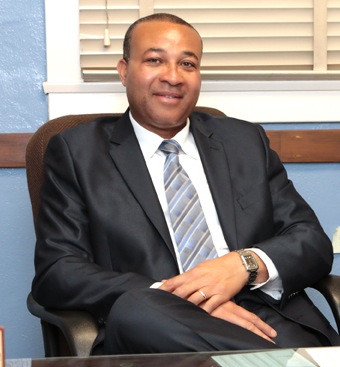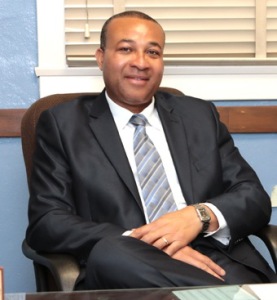By Dr. Chris Chinedu Ikeanyi
The urgent task to effect systemic change in Nigeria polity must begin at the individual level. Any Nigerian who desires change must begin with soul-searching and embark on a deep-rooted journey to change oneself first before venturing into changing any organs of the government or structure within the system. In this essay, I intend to argue that transforming any facet of Nigeria’s socio-economic, moral etiquette or the roguish mentality of many Nigerian leaders and followers must begin at the individual level, not at the party level. Because the party is made of people, not objects, the transformational journey must commence with self.
Speaking about the educational system, Professor James H. Stronge states, “regardless of how well a program is designed, it is only as effective as the people who implement it (Stronge, 1997).” Applying this to governance or leadership of a country, regardless of how well a political party is organized or led, it is only as good as the people who implement the party’s programs. With the victory of APC, the expectation for better governance in Nigeria has been set too high. The electorate is becoming too ambitious by thinking that the problem of the country will be solved overnight. It is grossly unrealistic to expect that Nigeria’s problems will be solved instantaneously with the emergence of a new government because APC cannot change Nigeria if the people within APC refuse to change as individuals.
The History of Political Parties in the Fourth Republic
APC and PDP are two sides of the same coin, and both parties are made up of the same people. Most of them function as members of PDP during the day and at night; they become APC as they attend their nocturnal meetings. The two parties share the same root and original manifesto since inception. The PDP, which until the recent elections of March and April of 2015 was the ruling party in Nigeria, came into existence with the amalgamation of five major parties.
On Wednesday, August 19, 1998, five parties, i.e. All Nigeria Congress (ANC), People Consultative Forum (PCF), Social Progressive Party (SPP), Peoples Democratic Party (PDP) and Peoples National Front (PNF), met at Sheraton Hotel Abuja and resolved to function as one new political party known as the PDP. Before this time, the same group of people who now make up the PDP and the APC existed as five separate parties. Ever since August 1998, the only thing that has continued to change is the nomenclature – the same operators have continued to metamorphose into different names. After the recent elections, the incessant defections by these political jobbers from PDP to APC are a clear testament to this claim. It is noteworthy that Elder Godsday Orubebe, the former Minister of Niger Delta Affairs under President Goodluck Jonathan, just announced his defection to APC. The core beliefs and structure of both parties remain the same – how to divide and share the wealth of the nation among most party members. As soon as the average Nigerians become tired of one acronym, i.e., PDP, the same group of people will change to a new one – APC for now.
That is why it may be overly ambitious to expect that a change of party will solve Nigeria’s problems. However, I am very optimistic that with the renewed awakening of the masses and their agitation for zero tolerance for corruption and abject poverty drowning more 50% of the citizens, it has become imperative for individuals within the new ruling party to change their style. I am equally encouraged by Mr. Buhari’s reputation, history and his lack of regard for material acquisition and hope that he will sincerely fight corruption in Nigeria.
The way forward for Nigeria must be individual accountability among the leaders. Each leader within APC must engage in door-to-door combat against corruption. It must begin with leadership by example. Each leader must model what he or she expects from the electorate. The first example to be set by the president is to stop the recycling of corrupt officials. We know the dossier of many people who have served Nigeria as cabinet ministers in the previous administration, and if Mr. Buhari yet again rewards any of those corrupt officials with high-level government positions, it will signal business as usual and thereby thwart the hopes of Nigerians. Mr. Buhari along with all the newly elected governors must demonstrate individual courage by beginning the cleansing process within their own parties. Leaders and followers who are known to have looted the government at any level must be brought to justice. Nigerians will believe that Mr. Buhari is determined to fight corruption by first stopping the corrupt officials within APC before extending the war on corruptions to members of other parties. The same war could be waged simultaneously, but charity must still begin at home.
The time to show genuine, courageous leadership is now, and it must start at the individual level, not party. These are my views. Yours are welcome.
Dr. Chris Chinedu Ikeanyi
Los Angeles, California









A good write-up ! What a great task for we Nigerians !Systemic Change-is it Achievable? Yes,We Can !It requires a movement—-we in diaspora can champion it and it will echo in Nigeria cities,town, local Govt communities.Buhari said it right during his inaugural speech– that he can’t stay eyes closed to watch the States and Local Govts imperfection ,corruption or poor revenue resources management.
My people, we should not forget that Gen.Idiagbo tried this Systemic Change Movement—————-pls join Dr Ikeanyi and myself to call for a radical change behavior-wise in how we Nigerians conduct business—-when practised , it will work for the overall benefit of the generality of all Nigerian society. The ball now is in the Buhari’s court———-for 8 years…..let him dribble it well,look out for good team players to score more goals for an economic-social victory